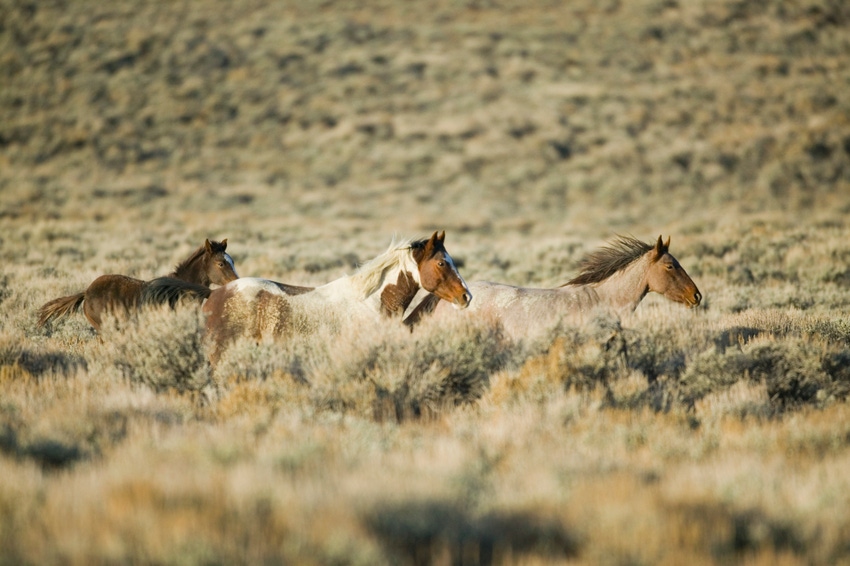Ranchers argue overpopulation of feral horses has caused environmental damage across the West.

Friends of Animals (FoA) launched a lawsuit against the U.S. Fish & Wildlife Service (FWS) asking the agency to give a herd of non-native, feral horses in Montana protection under the Endangered Species Act. Ranch and farm groups in the region object to the listing and called the lawsuit “ill-conceived.”
In the lawsuit filed in U.S. district court in Montana, FoA asked that FWS issue a 90-day finding, as required. The Endangered Species Act requires the government to consider the petition and make an initial decision on it within 90 days.
However, a rule regarding the petition process that went into effect on Oct. 27, 2016, requires the public to submit petitions to state agencies first, which delays the timeline and standards for listing threatened or endangered species.
FoA submitted its petition on June 12, 2017. It states that the Pryor Mountain mustangs’ lineage can be traced back to ancient horses that first evolved in North America and Eurasia and were thought to have gone extinct following the last Ice Age, before being reintroduced by Spanish settlers. The Old Spanish genetic lineage has since been lost in Spain due to domestic breeding, FoA said.
The National Horse & Burro Rangeland Management Coalition (NHBRMC) said the request fails to recognize that it is inappropriate to list a domestic livestock animal under the Endangered Species Act. Western rangelands are in a crisis, and feral horses face unprecedented starvation from exploding populations that have gone unmanaged for years on rangeland that is unable to sustain them.
“For too long, the narrative surrounding feral horse populations has been riddled with inaccuracies and dominated by misguided approaches,” NHBRMC chair Ethan Lane said. “Now is the time for responsible organizations to work together on effective management approaches that lead toward our shared goals of healthy horses on healthy rangelands.”
The livestock groups stated that the rapidly exploding feral horse populations are starving on the range, damaging western landscapes and causing irreparable harm to native flora and fauna.
"The organizations pushing ill-conceived actions on feral horses are willfully ignoring the facts,” said Dave Eliason, president of the Public Lands Council. “The science is crystal clear: There are no wild horses in North America and haven't been for 10,000 years. If we continue to allow the least informed among us to lead the debate, the plight facing these feral horses will worsen, and the health of our rangelands could be lost beyond repair.”
Lia Biondo, vice chair of NHBRMC, added, “Feral horses are not endangered; in fact, the overpopulation of these animals has caused environmental damage across the West. The coalition is dedicated to protecting the welfare of feral horse populations, preventing the degradation of rangelands and ensuring the well-being of all native wildlife; the recent actions by an activist organization accomplishes none of these goals.”
About the Author(s)
You May Also Like



.png?width=300&auto=webp&quality=80&disable=upscale)

